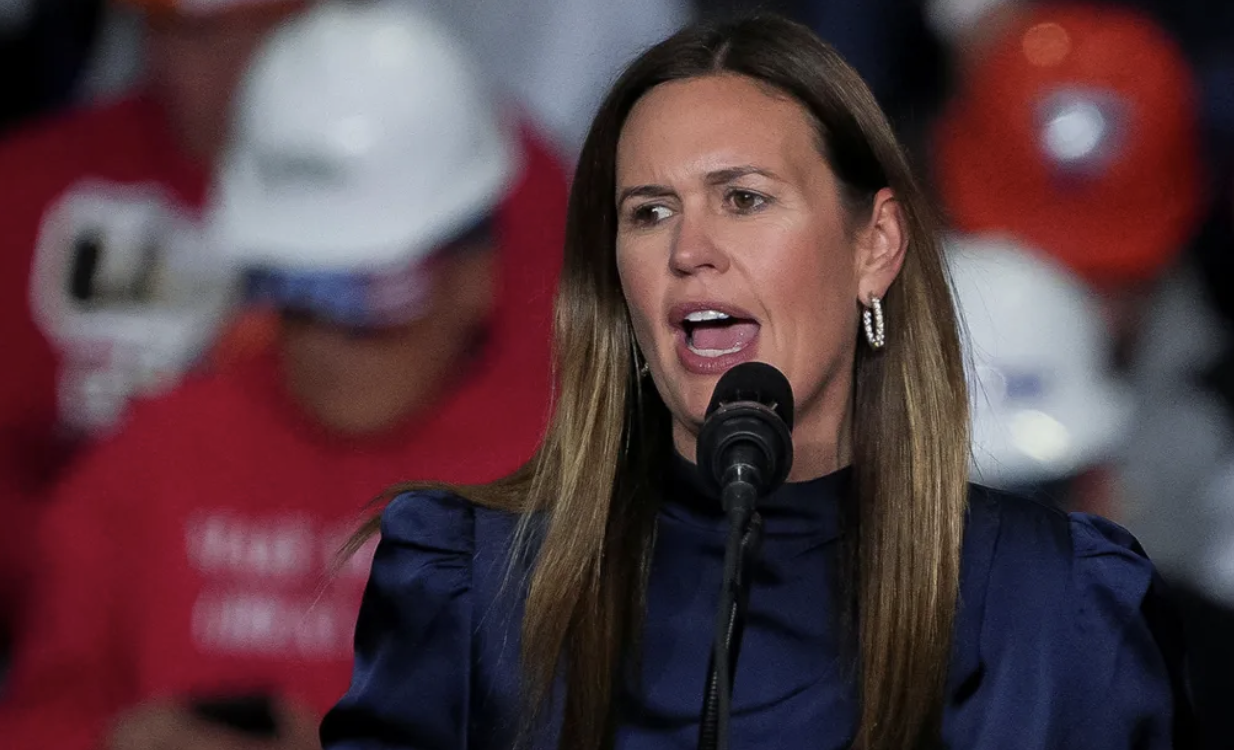By: Jack Butler – nationalreview.com – December 22, 2024
The case for letting Governor Sanders of Arkansas determine how her state administers food stamps.
It is my intention,” President Ronald Reagan said in 1981 in his first inaugural address, “to curb the size and influence of the federal establishment and to demand recognition of the distinction between the powers granted to the federal Government and those reserved to the states or to the people.” Reagan’s federalist commitment to the proper distribution of government power outlined in the Constitution guided his administration and enabled its success.
In 2024, can we apply those same principles toward the goal not just of reducing the size of the federal government, but of reducing the size of the American waistline? One worthwhile state initiative hopes to find out.
Last week, Arkansas governor Sarah Huckabee Sanders sent a letter to President-elect Donald Trump’s nominees to head the departments of agriculture and health and human services criticizing the Supplemental Nutrition Assistance Program (SNAP). Also referred to colloquially as food stamps, the $113 billion federal program, administered by the states, provides aid to the indigent to purchase food.
There was a stronger case for the food stamp program when it first launched in its modern form during the Great Society. Hunger was surprisingly widespread in the world’s wealthiest nation. Some still suffer from deprivation today. But the bigger problem is that we, ourselves, are bigger: In an age of food abundance, Americans are expanding. It became news recently that the percentage of obese adults declined for the first time in a decade. But the decline, as one study measured it, was from 46 percent of adults in 2022 to 45.6 percent in 2023 — a rounding error.
And in Governor Sanders’s view, SNAP bears some of the blame. “Unfortunately, this ‘Nutrition Assistance’ program is undermining the health of millions of Americans, on the taxpayers’ dime, by encouraging families to eat highly processed, unhealthy junk food,” she claimed. Recognizably unhealthy food, in her estimation, accounts for 23 percent of SNAP purchases. To push back, Sanders is requesting a waiver from existing federal guidelines for the program, allowing her state to restrict the foods and beverages that SNAP benefits can buy.
These concerns are not unique to Sanders. Cato Institute scholar Chris Edwards, who specializes in fiscal issues at the federal and state level, has referred to the nearly one-quarter of SNAP benefits that go to such items as sweetened beverages, salty snacks, sugars, and candy as the “junk-food subsidy.” To Edwards, “This is highly relevant because the government propaganda on SNAP and health and the like, they use the word nutrition over and over endlessly in talking about the SNAP program,” he says. And yet “the program, even on the government’s own metric, is just obviously completely failing.” Multiple studies
So would limiting SNAP benefits to healthier items lead to better diets? It may be a little difficult to prove, beyond mere correlation. But Angela Rachidi, a scholar at the American Enterprise Institute who studies poverty and safety-net programs, points to certain aspects of SNAP that would make identifying some degree of causation plausible. Among them is the fact, as attested to in one study, that the “marginal propensity to consume food” (MPCF) is higher in SNAP than for other income sources. This means that “there are different propensities to consume whether it’s SNAP benefits or cash, and that does suggest then that people spend that money differently,” as Rachidi put it to me.
Attempts to modify SNAP to limit certain food purchases might run up against a philosophical barrier. At first blush, it might smack of nanny-statism. But it’s already a federal program, and it already restricts certain purchases; so long as it exists, the debate is over what to restrict, not whether to restrict anything. “People can buy any junk and crap they want with their own money, okay,” Edwards says. “But as long as I’m paying for it, as a taxpayer, like with anything the federal government that taxpayers are paying for, we have a right to subsidize things or not subsidize things.”
The fact that Sanders isn’t even the first Republican to endorse something like this approach further defrays such objections. Last year, Senator Marco Rubio (R., Fla.) co-sponsored a bill that would have required the Department of Agriculture to collect data on SNAP’s health effects, and whether the program could be improved. “In the midst of America’s obesity crisis, taxpayer dollars shouldn’t be spent on junk food,” Rubio said.
But even if the debate about SNAP is not settled, and there remains wariness of federal efforts to modify it, that still militates in favor of letting Sanders try out her approach in Arkansas. The states are not quite laboratories of democracy in the way that progressive jurist Louis Brandeis meant it — that is, they and their citizens are not technocratic tableaux on which tinkerers can try top-down experiments. But they can be excellent venues to try out new policies, especially ones that reduce a state’s reliance on the federal government, or a citizen’s reliance on government of any kind.
Ronald Reagan liked to joke that the Left’s preferred economic policy went something like this: “If it moves, tax it. If it keeps moving, regulate it. If it stops moving, subsidize it.” It’s possible that, by subsidizing sloth, SNAP has modified Reagan’s riposte: We’ve subsidized unhealthy diets — and now we’re getting more people who don’t move. Let Sanders find out if there is applicable wisdom in Reagan’s humor, and America could benefit.
To see this article in its entirety and to subscribe to others like it, please choose to read more.
Source: Could a Helping of Federalism Improve Americans’ Health? | National Review
 Listen Online
Listen Online Watch Online
Watch Online Find a Station in Your Area
Find a Station in Your Area









 Listen Now
Listen Now Watch Online
Watch Online
